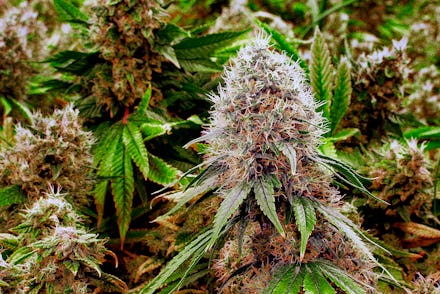The DEA Just Denied a Bid to Reduce the Federal Marijuana Classification

On Thursday, the Obama administration announced that it had rejected a bid by two Democratic governors to try to get the Drug Enforcement Administration to reconsider its classification of marijuana as a Schedule I narcotic.
Schedule I is the highest level of danger associated with a drug, and a classification marijuana shares with drugs like heroin and LSD, NPR reported. Marijuana has been scheduled as such since the Controlled Substances Act was passed in 1970.
In light of research on marijuana becoming increasingly ubiquitous, the administration's decision not to reduce its scheduling came as a surprise to supporters of legalization.
According to NPR, Tom Angell, the chairman of Marijuana Majority, argued in a statement that decisions about marijuana's regulation should be left to the states to decide.
"President Obama always said he would let science — and not ideology — dictate policy, but in this case his administration is upholding a failed drug war approach instead of looking at real, existing evidence that marijuana has medical value," he wrote.
But the DEA has long held that science is exactly what influences its decisions.
According to NPR, DEA chief Chuck Rosenberg said the agency gives "enormous weight" the advice of the Food and Drug Administration, which maintains that marijuana has "no currently accepted medical use in treatment in the United States."
"This decision isn't based on danger," Rosenberg said. "This decision is based on whether marijuana, as determined by the FDA, is a safe and effective medicine, and it's not."
Rosenberg added that ramped up opportunities for research on marijuana by federal authorities, like the allowances made in December 2015 for clinical trials on cannabidiol, could provide scientific insights that could help to reduce the drug's classification in the future.
"As long as folks abide by the rules, and we're going to regulate that, we want to expand the availability, the variety, the type of marijuana available to legitimate researchers," Rosenberg said. "If our understanding of the science changes, that could very well drive a new decision."